

Programming Slate Summary
PlatformsAdvertising offers by platform
ShowsCurrent programming directory
Schedule GridsBroadcast schedules by platform
Creative FormatsAvailable types of advertising
Technical SpecsAdvertising standards and formats
Customized advertising solutions
Branded ContentCustom storytelling solutions
Commercial ProductionIn-house production services
MAX CBC/Radio-CanadaDigital ad buying platform
CarbonIQ Emissions CalculatorTool for measuring emissions from your campaigns
Distribution - Archive SalesAccess to CBC/Radio-Canada's archives


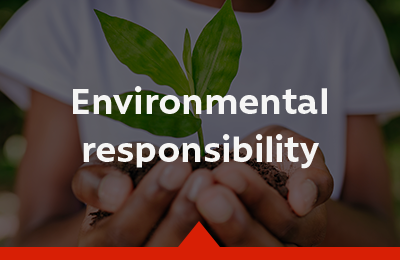

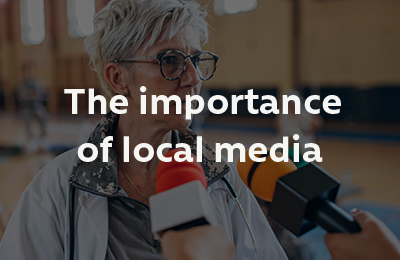
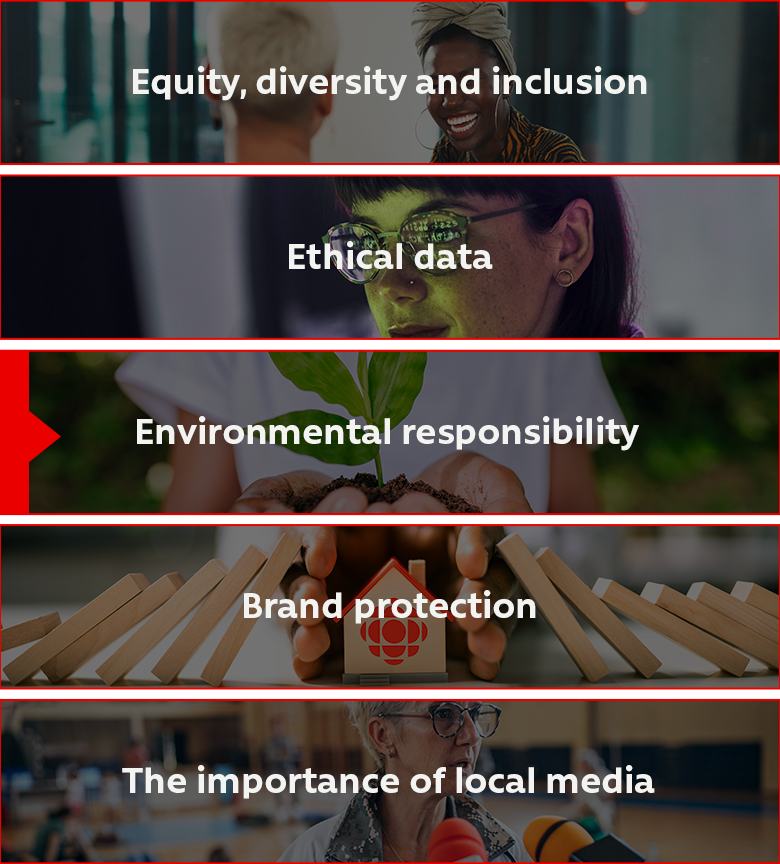
The digital transformation of the advertising industry, spanning the past 20 years, has resulted in a fragmentation of platforms, data and network technologies, opening up new options for advertisers. With this expansion also comes a responsibility: to ensure that our impact is positive. This is where responsible advertising comes into play, but what exactly is it? Above all, this means being aware of the potential impact of each stage of the advertising strategy, from design to consumption, and limiting its effects on the environment, measured in greenhouse gas (GHG) emissions. Here are a number of ways to adopt a responsible advertising approach:
To reduce or eliminate the impact of an advertising strategy, it's important to understand that each step of the advertising cycle produces emissions. Whether it's ideation, production, targeting, distribution or consumption, various elements such as servers, transport and the use of materials contribute to these emissions.
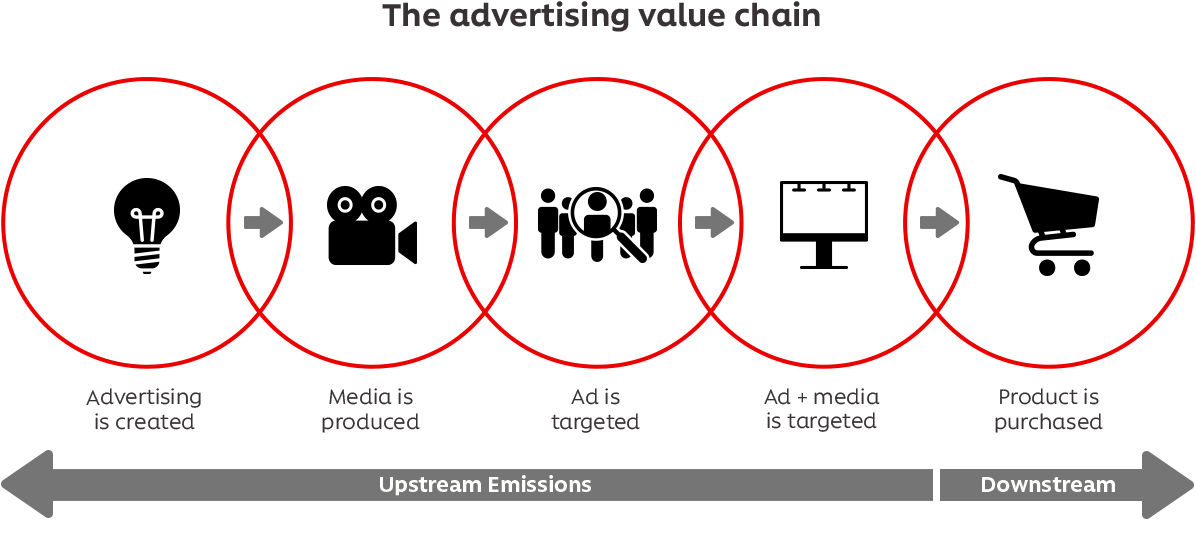
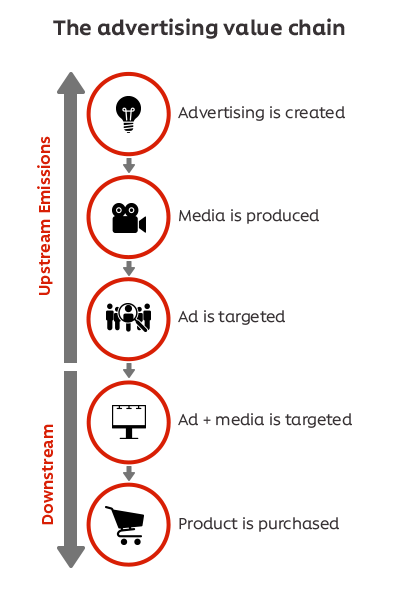
Companies need to assess their total carbon footprint, including scope 1 & 2 emissions, to understand their overall impact.

Scope 1 represents the direct GHG emissions produced by the company (equipment, fuel for company cars, etc.).

Scope 2 corresponds to indirect energy-related emissions that do not occur directly on the company site, such as electricity, heating and air conditioning.

Scope 3 emissions are more complex. They include emissions generated indirectly by corporate activities such as business travel, suppliers and advertising.
Major multinational agencies, under the umbrella of the Global Alliance for Responsible Media, are developing GHG calculators to understand the impact of these activities. The current focus is on measurement, identifying high-volume areas and finding more efficient choices before optimizing campaigns according to emissions. CBC/Radio-Canada has launched a plan, aimed at understanding and measuring all sources of emissions, a process that requires the commitment of every business unit. This approach enables us to better understand the emissions associated with our productions, studios and content.
The launch of Scope 3 and the Jounce Media report have sparked a movement against Made for Advertising (MFA) sites. These platforms frequently use catchy headlines and sensationalist content to attract visitors. While the programmatic advertising market on the open web is estimated at $88 billion, spending on MFA sites totals around $10.1 billion worldwide1. However, these sites tend to offer low-quality content and use intrusive methods such as pop-up ads and autoplay videos. Their main goal is to maximize the owners' advertising revenues, without providing any real added value. Therefore, it's advisable to limit the purchase of ads on MFA sites, and to favor recognized Canadian content companies.
Finally, it's important to team up with partners and suppliers who adopt sustainable practices at every stage of the supply chain. It's a good idea to choose those who share their progress, even if the process is ongoing, and to encourage them to measure their environmental impact in order to foster transparent collaboration.

"We need to understand the potential impact of each step of an advertising strategy in order to limit its effects on the environment."
Julie Kerr
Executive Director, Digital Ad Product and Revenue
Select an option to advertise in the CBC/Radio-Canada ecosystem


We and select advertising partners use trackers to collect some of your data in order to enhance your experience and to deliver personalized content and advertising. If you are not comfortable with the use of this information, please review your device and browser privacy settings before continuing your visit.